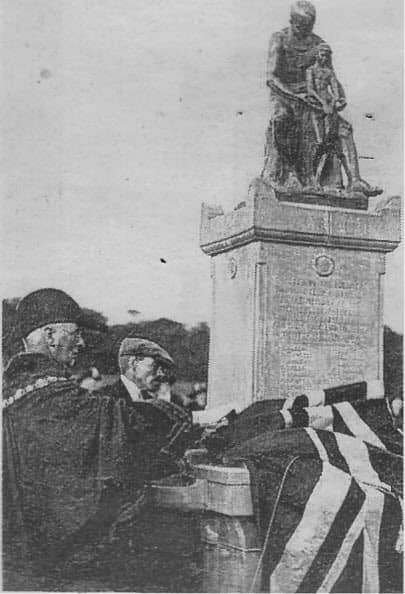In the final decades of the 19th century swimming became a very popular sport.
There were two clubs in our town - Sutton Coldfield Swimming Club and Boldmere Swimming Club.
Sutton Cold field Swimming Club was founded in 1885 with a membership of 70. By 1902 this had grown to 181. Club members would visit Blackroot Pool early in the morning as swimming was not permitted after 10am.
Attracted
The club's annual sports were held each summer at Blackroot and attracted many spectators, including
large numbers of young women There would be races for cups presented by A.L. Crockford a Sutton solicitor, and also diving and walking the pole.
Male members of the club socialised together, attending ‘very jolly’ smoking concerts.
The Boldmere Swimming Club had a significantly larger membership. This was because it was possible for people who lived in Birmingham to join.
In 1906 the club had 379 members, who made use of Powell's Pool.
However, when the Powell’s Pond Company increased the eekly charge for using the changing sheds that year from 7s 6d to £1, the club moved to the less-conveniently situated Blackroot Pool.

Picture courtesy of Sutton Coldfield Library}
The result was a decline in membership – this had fallen to 292 by 1909. Negotiations brought about the club's return to Powell's Pool. though it used Blackroot Pool for its annual sports.
A novel feature of this event was the handicap race - with competitors, wearing' a nightshirt and cap - which was intended to train lifeguards.
With the outbreak of the First World War in 1914, 60 members of the Boldmere Swimming Club volunteered to join the army.
Distances
The club managed to keep going for a year or so by arranging events for swimmers under the age of 18. In the annual sports of 1915 only a small number of swimmers completed their distances because of rough water and cold wind - though 17-year-old Cissie Reeves distinguished herself by swimming four miles in four hours two minutes and 45 seconds.
After the war the club erected a sculpture at Powell’s Pool in memory of members who had been killed. This sculpture can now be seen at Wyndley Leisure Centre.
Sutton Park: A Social History 1900-1950 by Stephen Roberts can be ordered from Amazon, £5.
George Dawson and his circle, the Civic Gospel in Victorian Birmingham is available from Stephen at half price (£8)
Associate Professor
Stephen Roberts